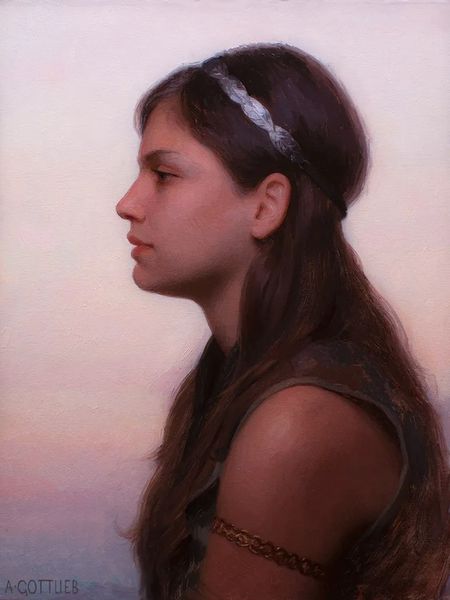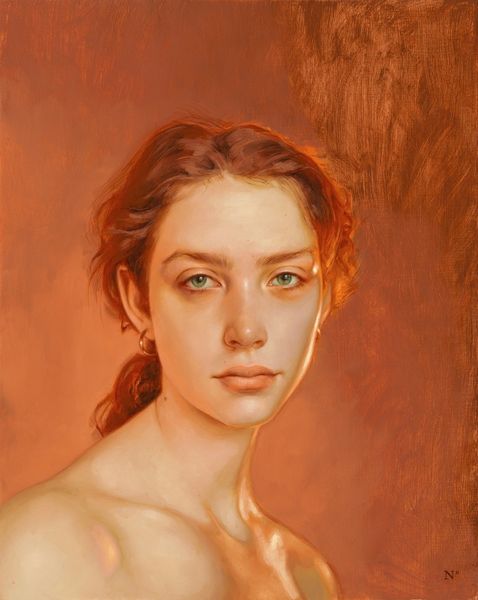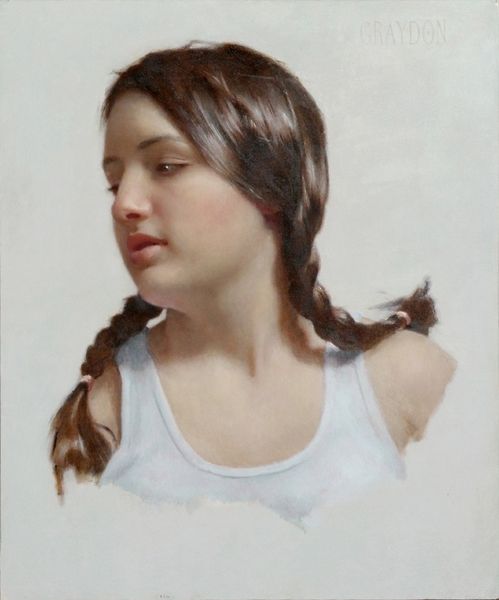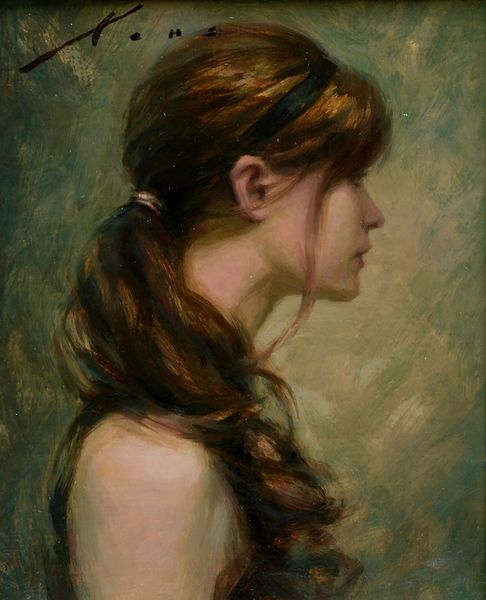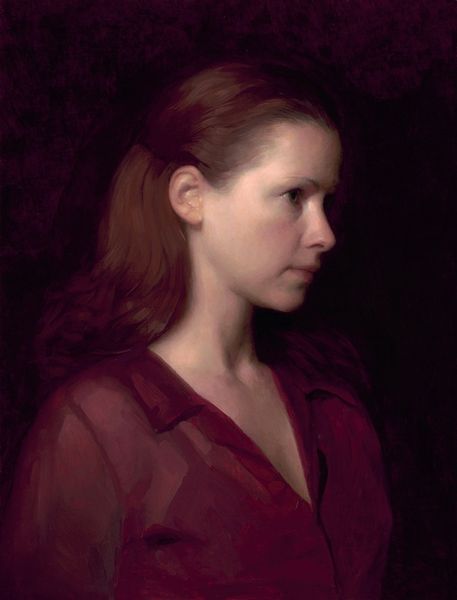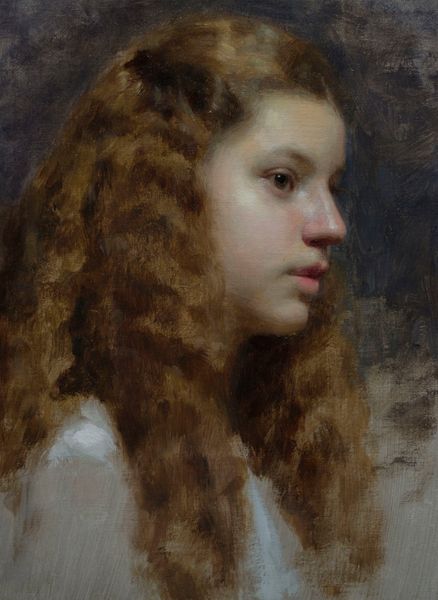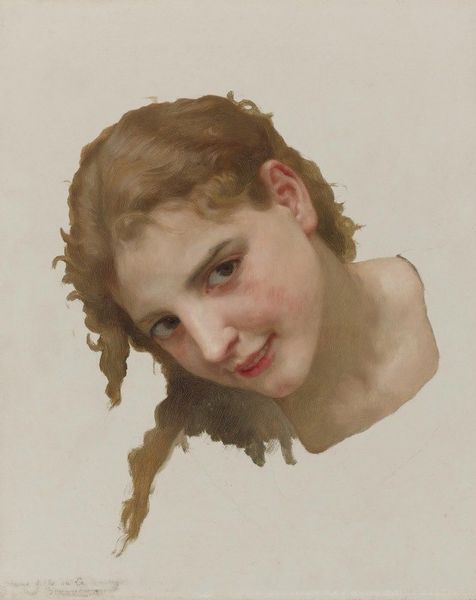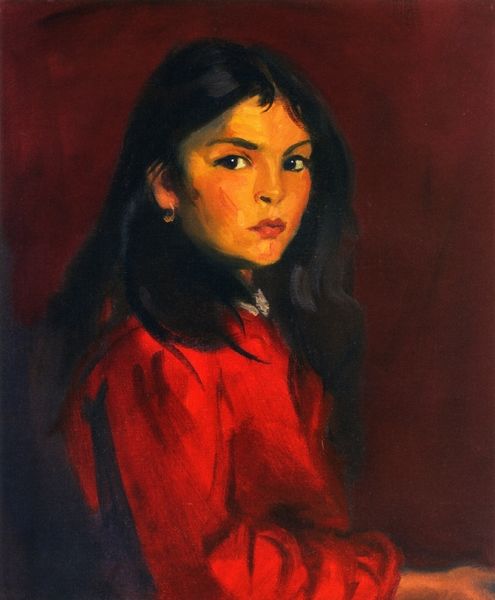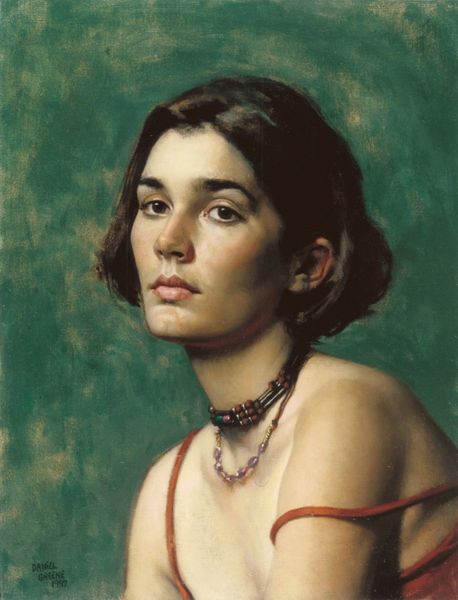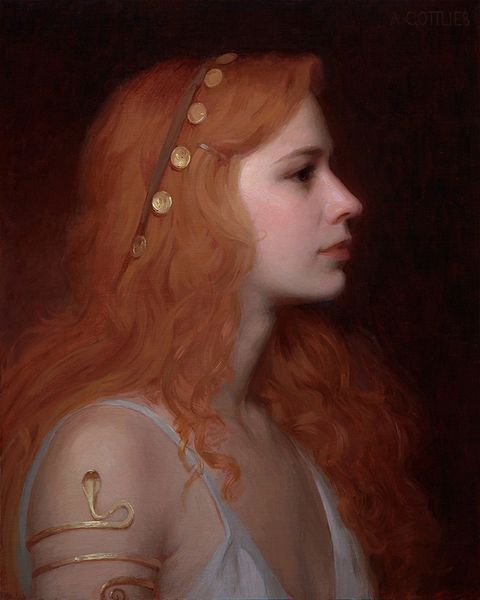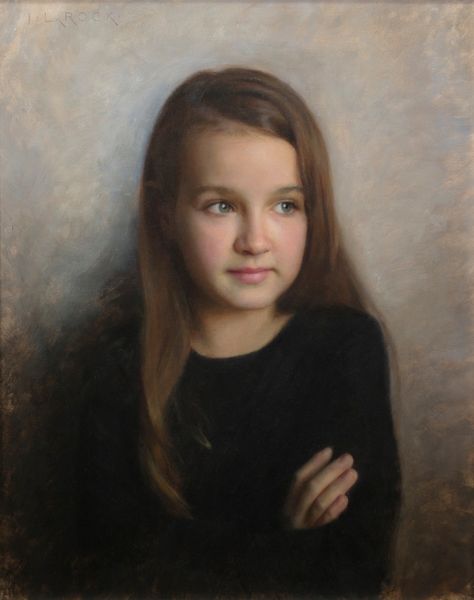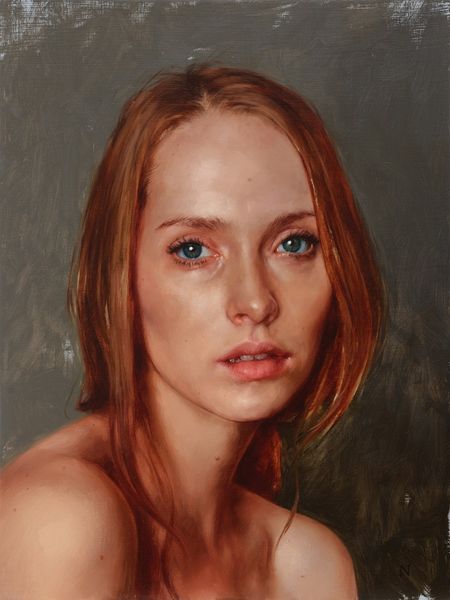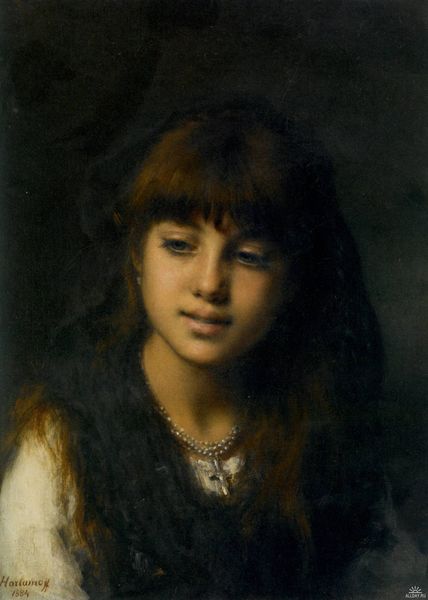
painting, oil-paint
#
portrait
#
figurative
#
painting
#
oil-paint
#
portrait art
#
realism
Copyright: Modern Artists: Artvee
Editor: So, this is "Jordan’s Reverie" by Adrian Gottlieb, it's an oil painting, though the date isn't specified. There's something quite arresting about it – the subject's upward gaze, almost ethereal. What do you see in this piece, especially considering its role as a portrait? Curator: It’s interesting how Gottlieb evokes the tradition of portraiture while perhaps subtly critiquing its historical functions. Historically, portraits served the elite, immortalizing wealth and status. Here, the subject, though rendered with classical technique, lacks those signifiers of power. Editor: You mean, there’s a democratization of portraiture happening? Curator: Possibly. The soft lighting and unfocused gaze seem to invite introspection rather than project authority. This is not to suggest a complete break from tradition; the very act of creating a painted portrait lends a certain importance to the sitter. How might the reception of this work differ, say, if it were exhibited in a grand salon versus a more accessible public space? Editor: That’s a really interesting point. In a grand salon, the absence of those traditional status symbols might be read as a statement in itself, while in a more public space, it might simply read as a relatable portrayal of an individual. Curator: Exactly. Consider the power dynamics embedded within the institution of the gallery itself. Who has access, who is represented, and how are those representations framed? These factors shape our understanding. Even the title "Reverie" can shift perception; the subject isn’t directly engaging with us. She's caught in a moment of private thought, subtly subverting the expected dynamic of a formal portrait. Editor: I never thought of it that way! So, seeing beyond the technique, it makes one think about portraiture's social position and its subtle transformation within contemporary art spaces. Curator: Precisely! Analyzing art history within shifting public contexts enhances our understanding of its purpose.
Comments
No comments
Be the first to comment and join the conversation on the ultimate creative platform.
